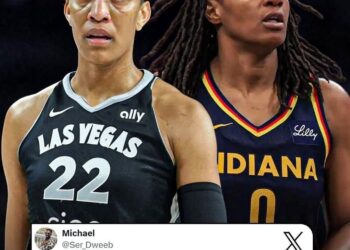Reebok’s highly publicized return to basketball has come to an abrupt end. The company has officially terminated its multi-million dollar shoe deal with Angel Reese, a partnership that was once billed as the brand’s bold reentry into the basketball market. What began as a major statement in sports marketing has instead unraveled into a cautionary tale.
The deal, announced with significant fanfare, was expected to reestablish Reebok as a serious player in basketball footwear. Reese, one of the sport’s most recognizable young stars, was seen as the perfect face to usher in a new era for the brand. Early campaigns emphasized her charisma and strong following, hoping to connect with a new generation of fans.
However, the momentum quickly faded. Over the course of the season, a series of viral missteps and underwhelming product launches drew criticism. Social media reactions often mocked the designs rather than celebrating them, and sales failed to match the hype. What was supposed to be a cultural reset instead became a string of embarrassments that chipped away at both the brand and the partnership’s credibility.
For Reese, the fallout marks a sharp turn in what was once celebrated as a groundbreaking endorsement. While she remains a rising figure in the sport with plenty of opportunities ahead, the failed collaboration shows how fragile even the biggest sponsorship deals can be when results don’t meet expectations. For Reebok, the collapse underscores just how difficult it is to break back into a competitive sneaker market dominated by giants like Nike and Adidas.
What was envisioned as a triumphant comeback now stands as a reminder of the risks tied to high-profile marketing gambles. Instead of rejuvenating Reebok’s place in basketball, the deal with Angel Reese has become a case study in how quickly a brand’s boldest bet can backfire. The end of the partnership leaves both sides looking for a reset—Reebok in its pursuit of relevance, and Reese as she considers her next big move in the business of sports.











